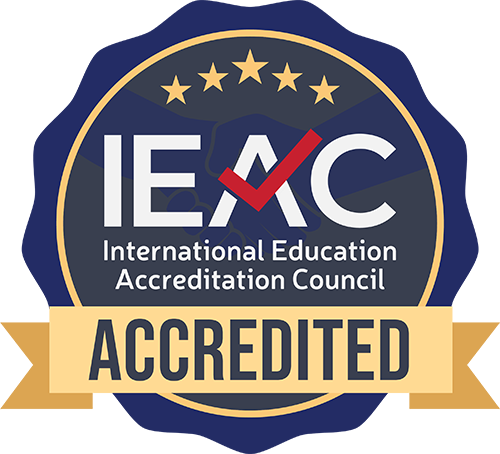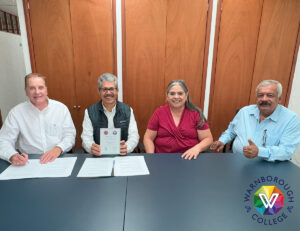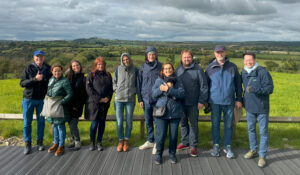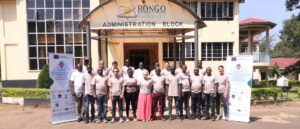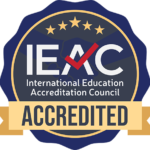Dr Tracy Hillier is an accomplished businesswoman and consultant in Canada. She completed her DBA focusing on corporate social responsibility and applied ethics at Warnborough College in 2005.
Tell us something about your background.
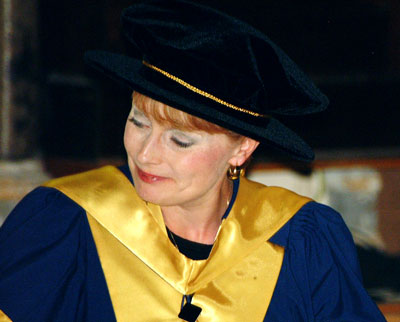
I had deep roots in technology-based delivery, developing new technology based programs as well as participating in the creation and development of courses and programs that meet multiple stakeholder needs. I spent a number of years as a Coordinator charged with the responsibility of managing those programs once they were up and running, while keeping in frequent contact with stakeholder advisory panels. This was to ensure that our curriculum would translate into higher completion and graduation rates and most importantly to meet the needs of employers. This would therefore, translate into jobs for our learners.
Why did you decide to do a higher degree via distance learning?
I chose to complete a doctorate in ethics and social responsibility at Warnborough so that I would have the opportunity to learn anywhere, anytime. I was very comfortable with the distance learning platform, having completed all my previous education through this format.
What was it like doing a distance higher degree?
Warnborough provided an excellent supervisor and with his assistance and direction, I ventured forth on a multi-faceted quest – the acquisition of knowledge and learning for the pure joy and love of the experience.
Tell us about your study – what area did you choose?
I become engaged in efforts to achieve a deeper understanding of ethics and social responsibility and the impact of the same with respect to today’s organization. To me, the ethical situation was in crisis. Most people will remember the time many years ago when the halcyon days of unchecked means of financial gain was coming to a tumultuous end. This was particularly so in the US and on Wall Street. One can recall many organizations such as Enron and Worldcom, along with domestic diva, Martha Stewart, all having violated the social contract regarding ethical standards and transparency.
I’m not saying there wasn’t oversight – but I am saying the state of transparency and the level of social responsibility were nowhere near what it needed to be to protect primary and secondary stakeholders. My study, all those years ago, stumbled upon the concept of the multiple stakeholder theory, which in my opinion remains today.
What is the multiple stakeholder theory?
This theory suggests that there are many stakeholders outside the shareholder. These have an interest in the outcomes of an organization, of which the only goal up until this point had been to generate profit. The traditional business model did not consider stakeholders such as the employee, customer, volunteer organizations, educational institutions, government bodies or environmental entities.
An organization could have more than 20 primary and secondary stakeholders with interest often being at odds with each other. I’m not saying that profit generation shouldn’t remain primary, as without this an organization will cease to exist. What is, however necessary, is the recognition that today’s businesses have greater responsibilities (social, environmental and economic). This should come with appropriate leadership providing ethical governance. Whistle-blower legislation, codes of conduct and employee protection are good but not good enough.
Do you have any plans for further study?

Bringing me to where I am today, with respect to organizational corruption, it spurned me on to have a better understanding of ethics and CSR (Corporate Social Resonsibility). I now find myself with another burning desire. What is the ethical state of the Union in the United States? Is the turmoil in America a global wakeup call? Has the president exposed the narcissistic reality that beats loudly amongst citizens, institutions, government and private enterprise? Is this a global situation?
Based on the aforementioned, I notice an alarming demonstration in the USA with respect to ethical leadership and governance. There will always be incidences of political corruption or lack of due diligence in the process. However, is it possible that this is far greater and runs deeper than we may ever know? After a recent conversation with an American friend, it was the context of a few short words he said that resonated with me. He said “within me beats a sad heart”. I immediately felt a whole range of emotions which pulled the trigger on my next pursuit.
Your next pursuit – what is it?
This is to investigate further and conduct research that will answer critical questions which at present are being pondered by many around the world. What happened in the USA? Has the political process failed Americans by not ensuring responsible candidates? The incumbent “leader of the free world” has divided the nation (and the world) with many questioning his aptitude, skills, behaviours and attributes for governing the country. What can other countries learn from this? How can the actions of one individual impact on the rest of the world? I believe a great deal of learning from a political, social, ethical and organizational perspective can be gleaned from the situation both leading up to and presently within the fabric of America.
Perhaps you may want to follow in Tracy’s footsteps with a Doctorate in Business Administration (DBA).
Alternatively, you may be interested in the history of ideas or philosophy.

